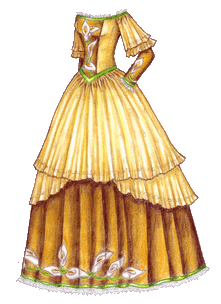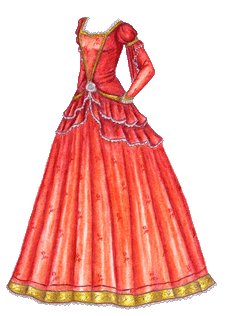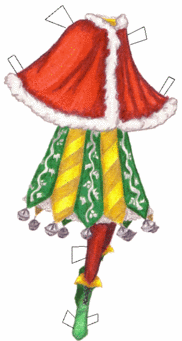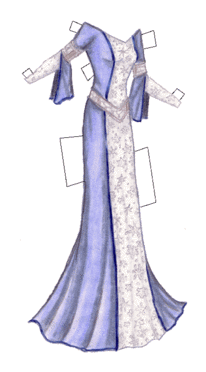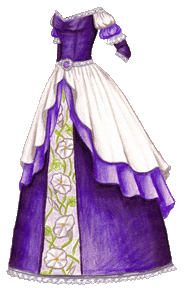 Click for larger version; click for the list of dolls.
Click for larger version; click for the list of dolls.
Now, said cobbler’s assistant was actually a wise choice on the part of the Minister of Sorcery. The cobbler himself had encouraged his apprentice to look into a (higher-paid) position with the Sjalfer military, for there was something about his cat-like way of delivering shoes to people and staying under the radar that suggested a potential spy or an assassin. But the assistant himself, whose name was Ced (short for Cedric, but no one called him that), much preferred making things and was rather shy besides. The wordy explanation from the minister left him rather dizzy, but he was already formulating plans before he left the room.
First he visited his master to pick up the slippers that had just been made for the princesses. The cobbler presented a box of them and also a pair of royal blue shoes. “The slippers are for the princesses and those shoes are for you. Special soles, you see,” he said proudly as he turned them over and poked at them. “Wonderful things, muffle your footsteps. Like walking on little clouds, almost. I’ve been working on a pair for the Minister of Defense, but he can wait while you track those silly girls.”
After thanking the cobbler, Ced’s next destination was his mother’s room. The Minister of Sorcery had hinted that returning to the King with no answer might be fatal, and although Ced suspected that this was only one of the Minster’s dramatic flourishes, he had better make his preparations anyways. She was a seamstress, and was stitching away at some golden material as he came in, her hands flying even as he explained the situation.
“My, I can hardly blame them if they have found a way out, even if demons are behind it,” she said disapprovingly. “His Majesty keeps them on a tight leash, yes indeed. You know, I taught Gabrielle how to sew, yes I did, but that was when the Queen was alive, and after her passing those girls got locked up, it seems like. It seemed like a major breakthrough when he first let them out to decorate for Christmas a couple years back! I miss them. You know, I got something for them last year, and I never did get around to applying for an audience… Can you bring them this book from me?” She produced a handsome old book from her closet and handed it to her son. “They do love their fairy tales, those girls. I bought this off a peddler with them in mind. Don’t mention that it’s a year late, of course.”
At twilight, armed with the box, the shoes and the book, Ced hurried to the princesses’ chambers. He had been there before, but only to drop off their finished slippers; being naturally shy and wary, he liked to finish the task as quickly and unobtrusively as possible. So he had hardly ever seen them, much less talked to them, and although he knew their names he wasn’t sure he could tell them apart without looking at their shoes. His mom had taught him the basics of etiquette when dealing with royalty, but all Ced could remember of it was that you kneeled and used titles instead of names. He had developed his stealthy style partially to avoid having to remember such troublesome things.
After announcing his name and mission to the guards at the door, he stepped into the hallway. Usually he would deliver the shoes into individual closets without announcing his presence, but this time he called out “Delivery for the princesses,” and in a moment he was mobbed by twelve young women.
“What have you brought for us?” asked one eagerly.
“The cobbler has finished your slippers, and I’m here to deliver them,” he answered, opening the box and selecting a petal pink pair to pass out first.
“Those must be mine,” one cried, reaching for the shoes. “Pink’s my favorite.” I almost forgot, thought Ged with a great wave of relief, the princesses are color-coded. Juliette likes pink, so that one’s her. He next pulled out a red pair for Perdita and a gold pair for Camellia, and by and by all of the princesses were poking out their feet from under their bell-shaped skirts and admiring each others’ slippers.
This dress belongs to twenty-three year old Daphne. She isn’t as smart as Perdita or as wise as Camellia, and she’s even more passive and shy than either of them, so she often feels a little overshadowed and put-upon. She has a romantic soul and a refined aesthetic sense, and she loves to be by herself, writing poetry and drawing. She’s kind, but not overly friendly with any of the princesses except for Juliette, as the two of them have collaborated in writing songs and lyrics for several years. Her favorite color is violet, and her favorite flowers are moonflowers.
 Share
Share